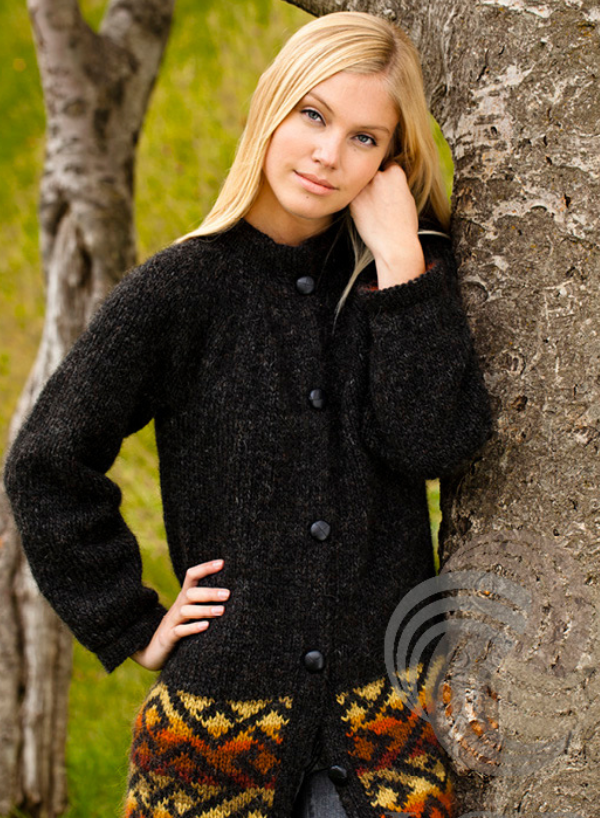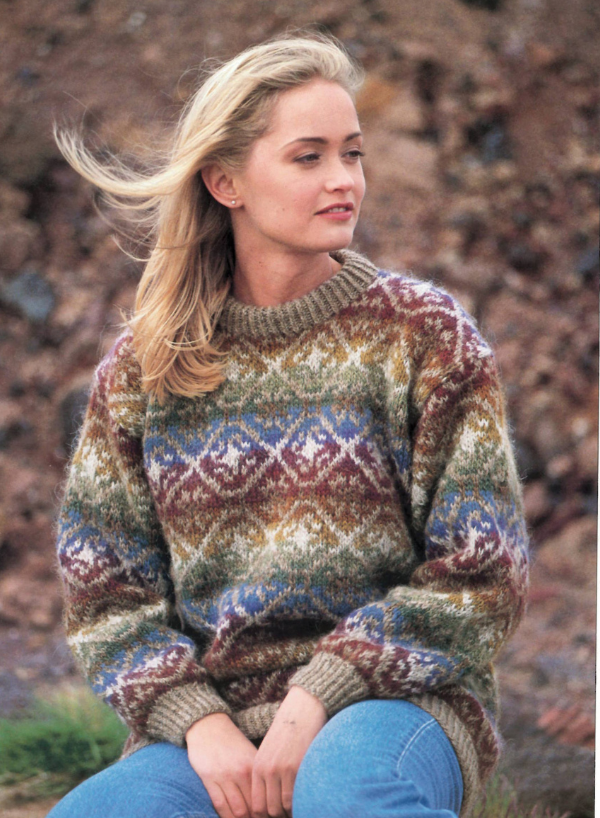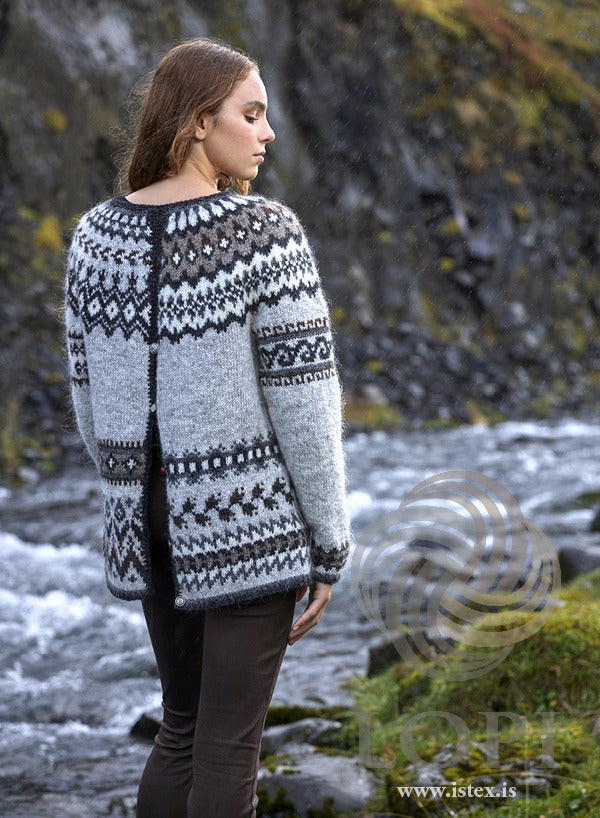
Lopidesign
Lopidesign is a pattern collection designed especially for Lopi yarns from Ístex. Yearly Ístex publishes a pattern book with Icelandic designs to fulfill the demand for unique, traditional and creative design.
Our commitment with Lopidesign is to offer high-quality patterns that are innovative and easy to follow.
Védís Jónsdóttir is our in-house designer in charge of Lopi yarn colours and patterns. Furthermore, Ístex has a long history collaborating with creative minds.
We offer the famous Álafosslopi and other Lopi yarns for hand knitting such as Plötulopi, Bulkylopi, and Léttlopi around the world. Our products are made out of high-quality Icelandic wool.
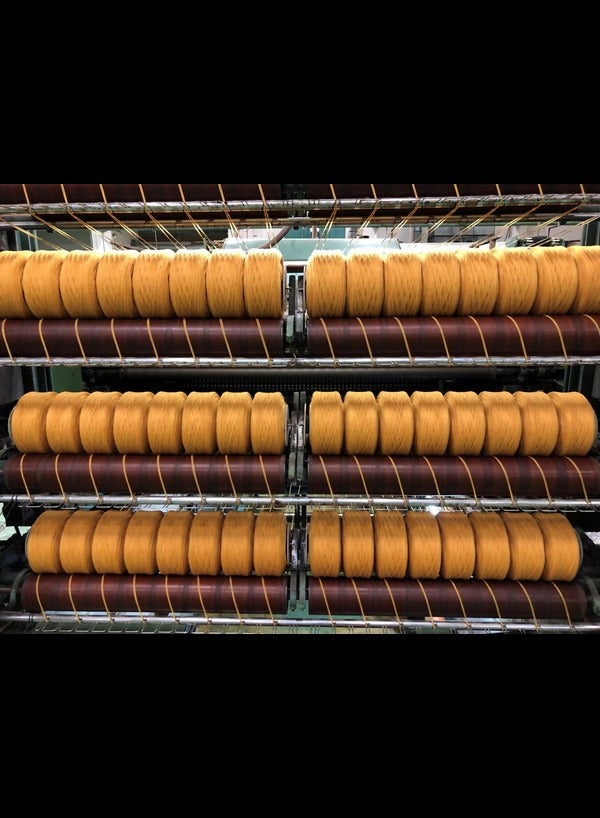
The Company: Ístex hf
Ístex was founded by farmers in 1991 to continue the Icelandic wool industry that began in Mosfellsbær in 1896. The company purchases wool directly from farmers and processes approximately 98-99% of all Icelandic wool. Over 90% of Ístex is owned by Icelandic farmers and retired farmers.
Our commitment with Lopi is to offer high quality products from Icelandic wool to customers that choose natural, sustainable and eco-friendly living. Our wool is OEKO-TEX Standard 100 certified.
Visit Ístex to know more about us and our Lopi products.
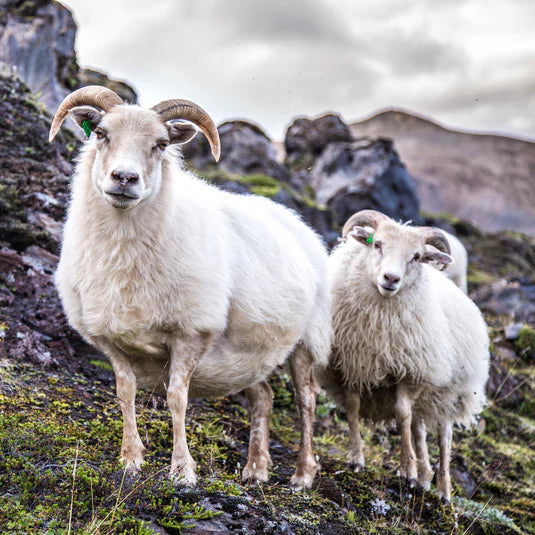
The Icelandic sheep
When Viking settlers arrived in Iceland in the 9th century, they brought animals essential for survival. The Icelandic sheep, a unique breed, has been shaped by centuries of isolation and arctic conditions.
Iceland has about 400,000-500,000 sheep, slightly more than its human population! Most sheep farms are family-owned, with 200-300 animals, and many farmers even know their sheep by name.
In summer, the sheep roam free in the vast Icelandic wilderness, but in the harsh winter months, they are sheltered by the farmers.
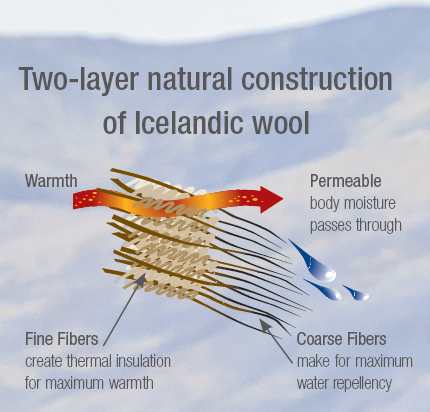
The Icelandic Wool
Icelandic wool offers exceptional breathability and thermal insulation. Shaped by over 1,100 years in a sub-arctic climate, it has developed a unique character.
The wool is dual-coated, combining two types of fibres. The inner fibres, þel, are soft, fine, and insulating, while the outer fibres, tog, are long, strong, and weather-resistant. Together, they form a lightweight, water-repellent, and breathable wool. When processed together, they create the exclusive Lopi, which inspired the name Lopidesign.
Icelandic wool keeps you warm and cozy, while allowing moisture to escape from the skin.
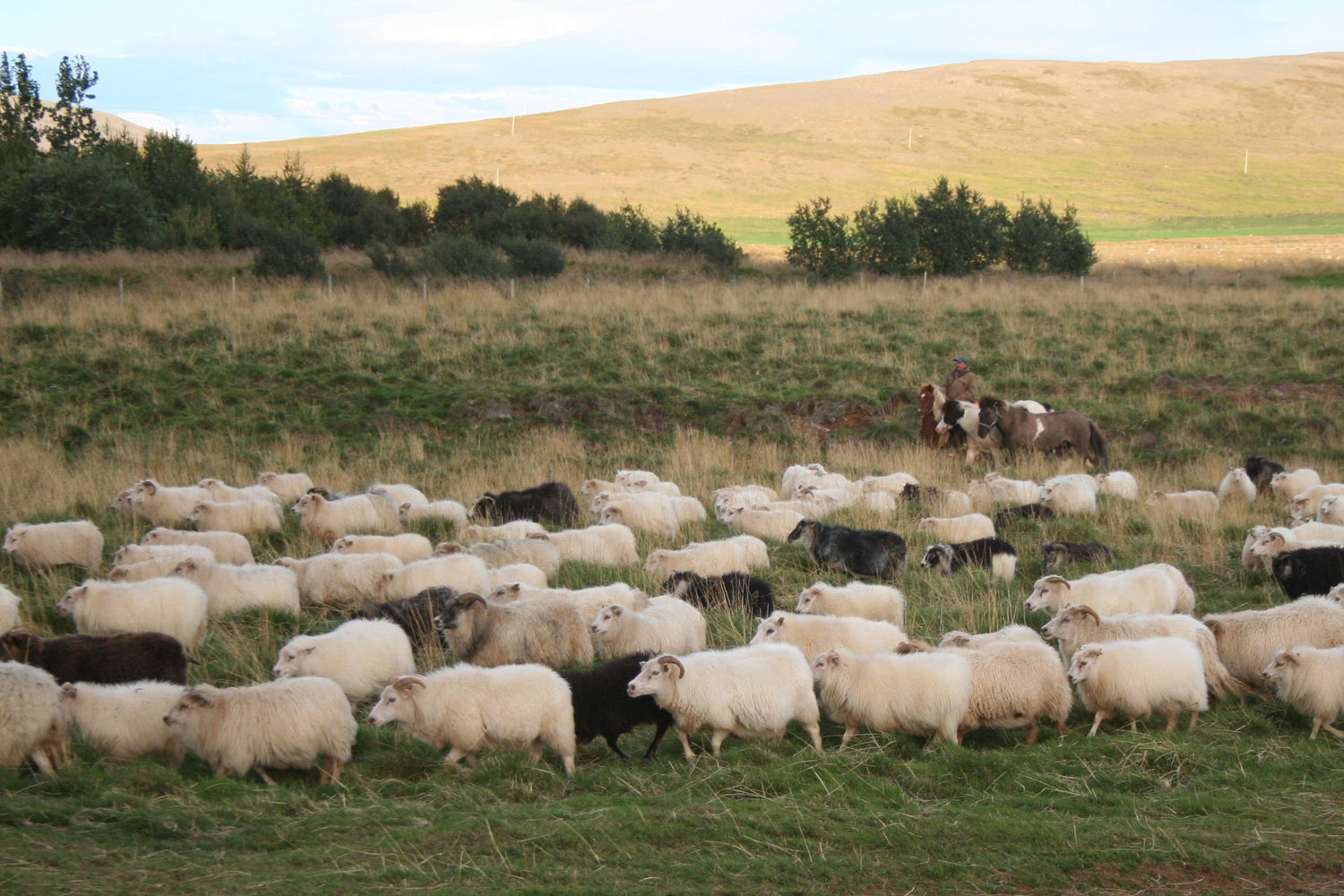
Animal welfare
Iceland values cleanliness and kindness, with strict sheep welfare standards and surveillance. Sheep are rarely exposed to antibiotics, hormones, or chemicals, and the use of pesticides and herbicides is minimal. Icelandic sheep are not subjected to mulesing or unnecessary dehorning.
Shearing is essential for their wellbeing, as sheep don't naturally shed their fleece. Farmers carefully oversee the process to ensure the animals' comfort. After shearing, sheep are sheltered indoors until their wool regrows for outdoor protection.
For more on animal welfare, visit MAST, the Icelandic Food and Veterinary Authority.
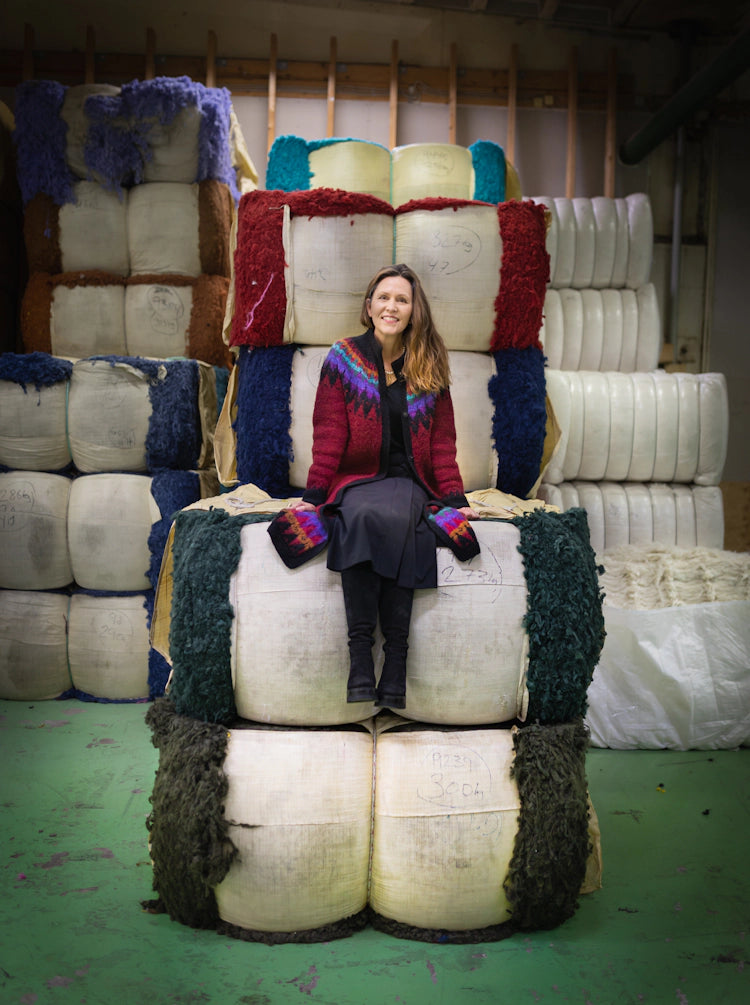
Our Designer Védís Jónsdóttir
Védís Jónsdóttir, Head Designer at ÍSTEX, pours her passion and creativity into every piece she designs. With years of experience in the wool industry, she brings a deep understanding of Icelandic wool to life, crafting vibrant colors, beautiful knitwear, and cozy woven blankets. Each of her creations is a unique expression of her inspiration, rooted in the natural beauty of Icelandic wool.
You can also follow her on Instagram

Our Other Brands
At Istex we proudly introduce two sister brands that share our dedication to quality and authentic Icelandic wool. Both offer worldwide shipping so customers everywhere can enjoy true Icelandic comfort.
Lopidraumur
Lopidraumur presents a bedding collection made from pure Icelandic wool. Our duvets, pillows and mattress toppers provide natural warmth, breathability and comfort. Each piece is designed to support deep and restful sleep.
Link to Website: lopidraumur.is
LopiHome
LopiHome offers a beautiful collection of blankets crafted from Icelandic wool. Warm and timeless, these blankets bring the spirit of Icelandic coziness into any home.
Link to Website: lopihome.is

